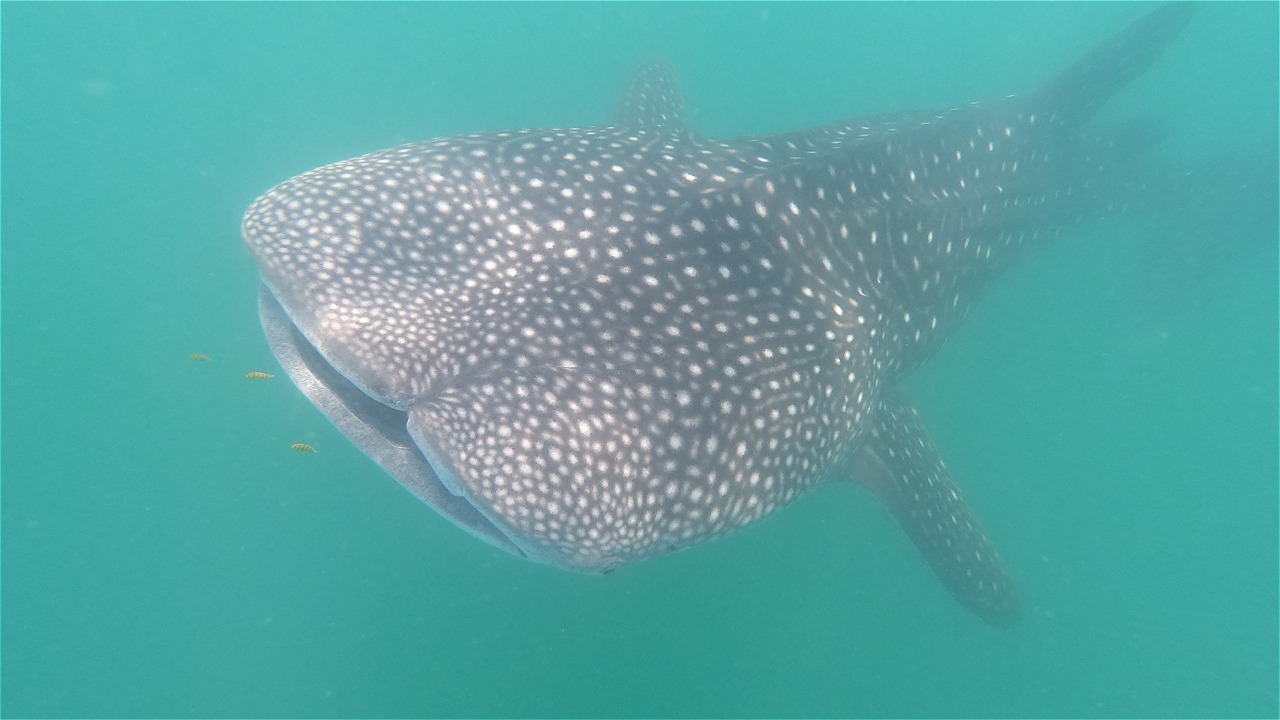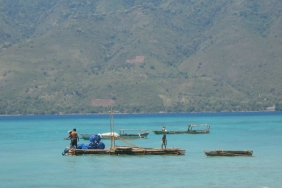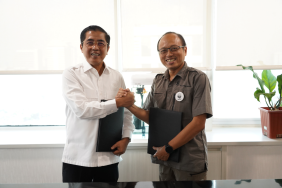TOURIST ACTIVITIES IN GORONTALO AFFECT WHALE SHARK EMERGENCE
By: Casandra Tania (Marine Species Officer, WWF-Indonesia) and Mahardika Rizqi H (Project Leader, Whale Shark Indonesia)
A total of 19 whale sharks have been spotted in Gorontalo waters since March 2016. An average of six individual whale sharks appear from morning to evening. Although tourism activities with whale sharks in Botubarani Village can be likened to two sides of a coin, the negative impacts are more prevalent than the positive impacts received by local communities. Such as the threat to the sustainability of whale sharks in nature, the discovery of a lot of plastic waste brought by tourists, and changes in the behavior of whale sharks who come to boats to eat shrimp skins and heads which make the water turbid and fertile in algae.
However, unexpectedly after 5 months of constant appearances, the whale sharks disappeared in mid-August 2016. Yet the factory's operations to remove shrimp shells and heads continued. In early October 2016, two whale sharks reappeared after almost two months of absence. Based on the results of the survey, one of the two whale sharks was an individual that had appeared between March and August 2016.
The appearance of whale sharks in Botubarani Village, Kabila Bone Subdistrict, Bone Bolango Regency, Gorontalo, became popular after photos of marine tourism activities carried out by tourists were spread through social media. Tourists from all over the world are racing to Botubarani to experience the thrill of swimming with whale sharks. Easy access and a guaranteed encounter with whale sharks have kept the number of tourists growing. Visibly, the activity of tourists providing food in the form of vaname shrimp skins and heads (Litopenaeus vannamei) from the rest of the factory operations keeps the whale sharks coming back to Gorontalo Waters. In one day, more than 100 kg of shrimp skins and heads are thrown into the water from the boat. This can be seen from the number of tourists who have direct interaction when the boat is approached by a whale shark.
Stakeholders of whale sharks in Botubarani, including the government of Gorontalo Province Marine and Fisheries Service, Gorontalo Province Tourism Service, Bone Bolango Regency Marine and Fisheries Service, Makassar Coastal and Marine Resources Management Center, law enforcement of the Gorontalo Police Directorate of Marine and Air Police, Gorontalo Lanal Naval Base, Botubarani Village Head village officials, Botubarani Tourism Awareness Group, Whale Shark Indonesia, WWF-Indonesia, IPB, and Muhammadiyah Gorontalo University developed rules for interacting with whale sharks. The formation of tourism awareness groups, tourism interaction zones, restrictions on the number of tourists, prohibitions on touching whale sharks, and feeding restrictions were enacted according to the agreement of all parties. Waste bins and other infrastructure were also built to support sustainable tourism in Gorontalo waters. It is not easy to implement all the rules in the field because tourists' requests to interact with whale sharks are sometimes difficult to stem.
Utilizing protected species as tourist attractions must certainly be done responsibly to minimize the negative impact of tourist activities on whale sharks. Not only economic improvement, but sustainability and education issues need to be taken into account, according to the Gorontalo Whale Shark Monitoring Team.
Botubarani case study, maintaining the wild side is the most important thing. Studying its natural behavior in Gorontalo waters needs to continue. Linking the appearance of whale sharks with the dynamics of their natural food is one of the things that also needs to be known. So that in the future, tourism that occurs is us looking for whale sharks, not whale sharks looking for us. Travelers can do tourism activities in Gorontalo waters responsibly using the Guidelines for Interacting with Whale Sharks. Because it will be more enjoyable to enjoy the natural beauty of marine tourism activities without damaging the environment caused.





